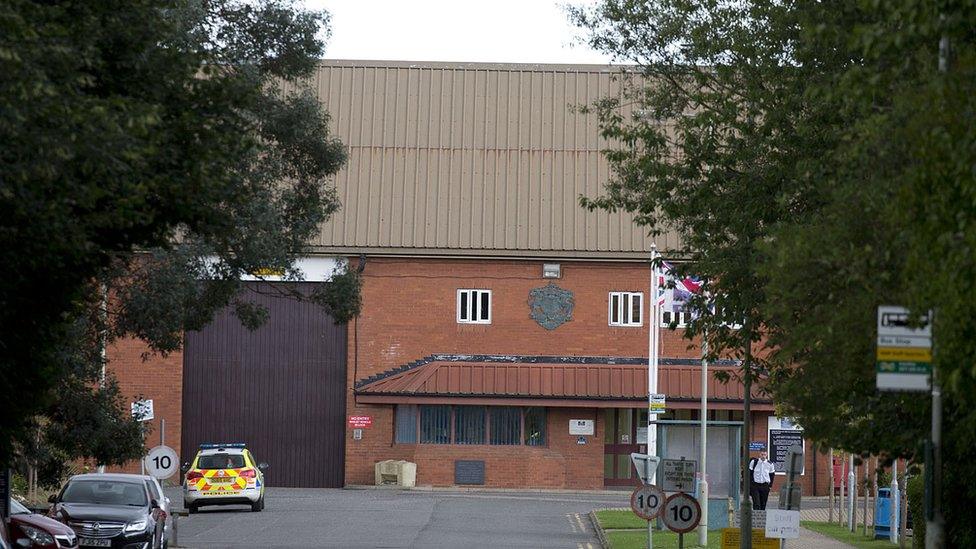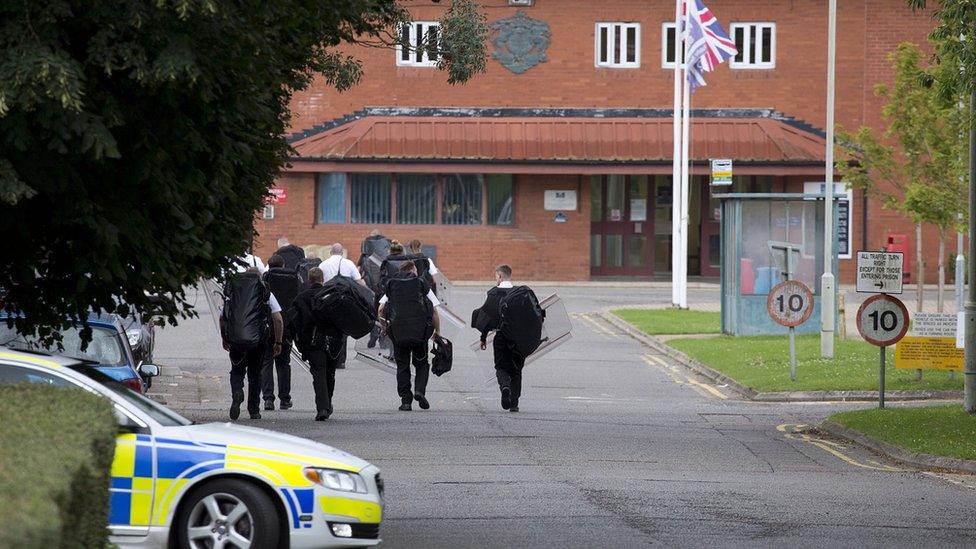HMP The Mount inmate died after ambulance cancelled
- Published

Michael Velvick had been recalled to prison in February 2016
Prison staff cancelled an ambulance for an inmate who was later found dead without seeking appropriate medical advice, a report has said.
The ambulance for Michael Velvick, 43, who appeared to have used the drug Spice at HMP The Mount, Hertfordshire, was called off as he was conscious and walking on 26 April 2016.
He was found dead the next day.
The prison has been criticised by investigators over how it dealt with psychoactive drugs.
It now only allows healthcare staff to cancel ambulances.
A post-mortem examination found Mr Velvick died from sudden adult or arrhythmic death syndrome, but a Prison and Probation Ombudsman (PPO) report, external was "concerned that new psychoactive substances (NPS) may have played a role" in his death.
Investigators said he had a "significant history of substance misuse" but that the prison had "no strategic approach to support and monitor prisoners suspected of taking" NPS drugs.
The report stated staff "failed" to complete security reports or conduct cell searches for suspected drug users to tackle the use of NPS at the prison, where inmates caused £200,000 worth of damage in two days of rioting last summer.

Riot officers with shields were called to attend HMP The Mount last summer during two days of disturbances
Mr Velvick was found lying on his cell floor unable to move and incomprehensible so an ambulance was called shortly after 19:00 BST.
He began walking around his cell but there was "confusion among staff... about what to do and how to monitor Mr Velvick".
The report said staff cancelled the ambulance and agreed to observe him at half hourly intervals, but he was not checked between 20:30 and 06:00 the next morning, when he was found unresponsive.
"Staff cancelled an ambulance without appropriate medical advice and failed to monitor him effectively," the report stated.
The prison has since had training events for staff and inmates about NPS, revised instructions to staff about those prisoners misusing drugs.
A Prison Service spokesman said the PPO recommendations were accepted.
He added: "We have tackled this head on by bringing in 300 specialist drug sniffer dogs, new body scanners and making it a criminal offence to possess these drugs in prison."